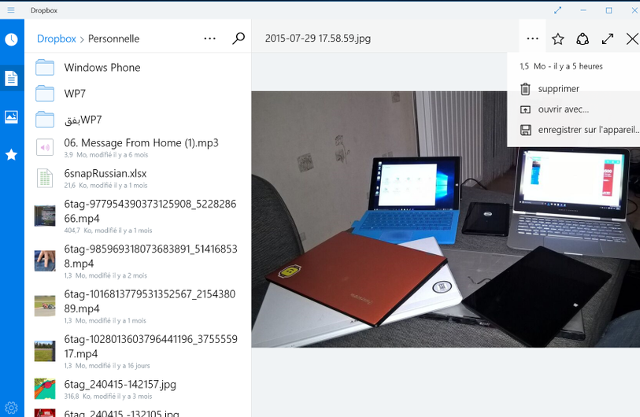
However, Huyn went on to state that the current Dropbox app is still the same piece of software that was built for Windows 8.1, according to a report from WinBeta. That means that it isn’t universal, a feature that Microsoft has been pushing hard ahead of the launch of Windows 10.Yesterday evening, Dropbox developer Rudy Huyn took to Twitter to share some images of the brand new version of the service’s app, which was released alongside the Windows 10 launch. The update brings it in line with the UI aesthetic that Microsoft has introduced to differentiate Windows 10 from its predecessor.
Responding to criticism on that subject on Twitter, Huyn suggested that making the jump to universal was ‘too risky,’ given that the final SDK for such functionality was released just one day before Windows 10 itself was launched. However, it’s very likely that Dropbox will be released as a universal app in the near future.
The update to the current Dropbox app largely focusses on visual tweaks. The size of fonts and icons has been adjusted, as has the position of the app’s toolbar which has made the jump from the bottom of its window to the top.
These may seem like relatively minor changes, but it’s important to remember that developers are still adjusting to the shift from Windows 8.1 to Windows 10. With development tools only being made available very recently — not to mention the visual styling of the OS being unfamiliar at this point in time — it’s preferable for these apps to be modernized the right way, rather than being rushed out as soon as possible.
Editors' Recommendations
- Scores of people are downgrading back to Windows 10
- The next big Windows 11 update has a new hardware requirement
- Microsoft announces a new threat to push people to Windows 11
- Windows 11 vs. Windows 10: finally time to upgrade?
- Beware! The latest Windows 11 update might crash your PC


